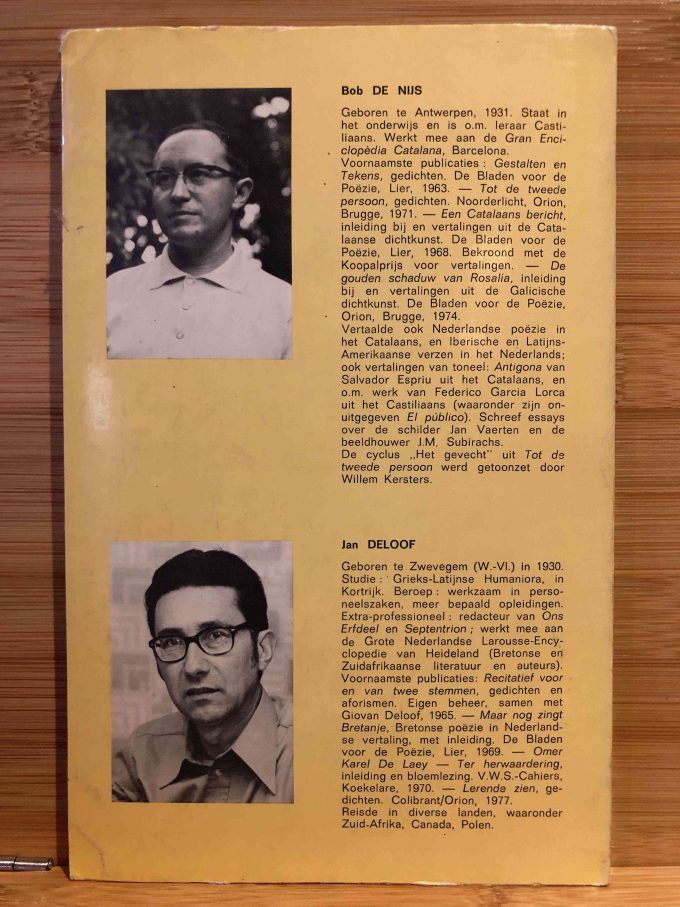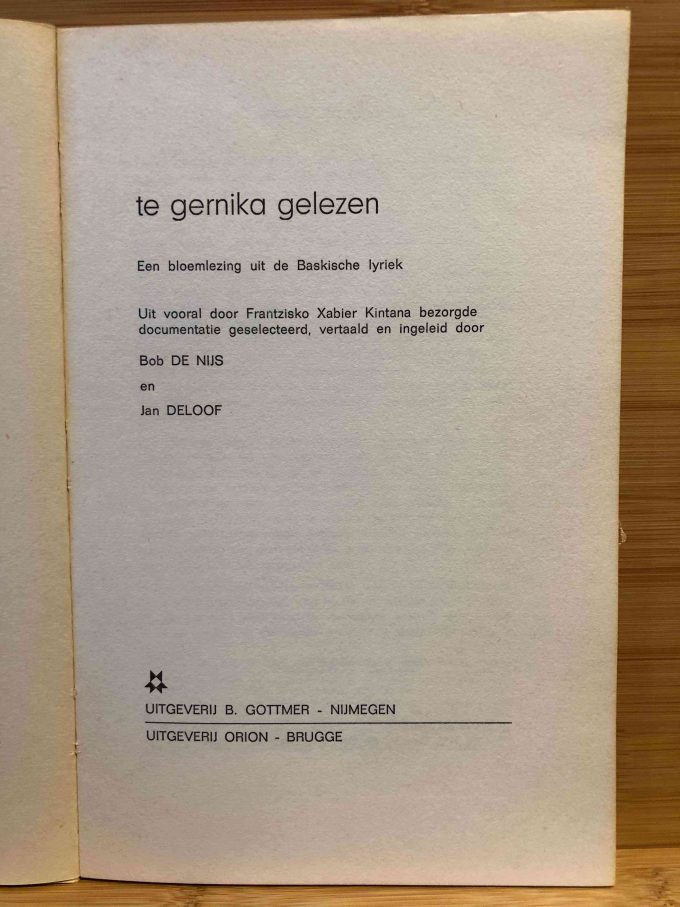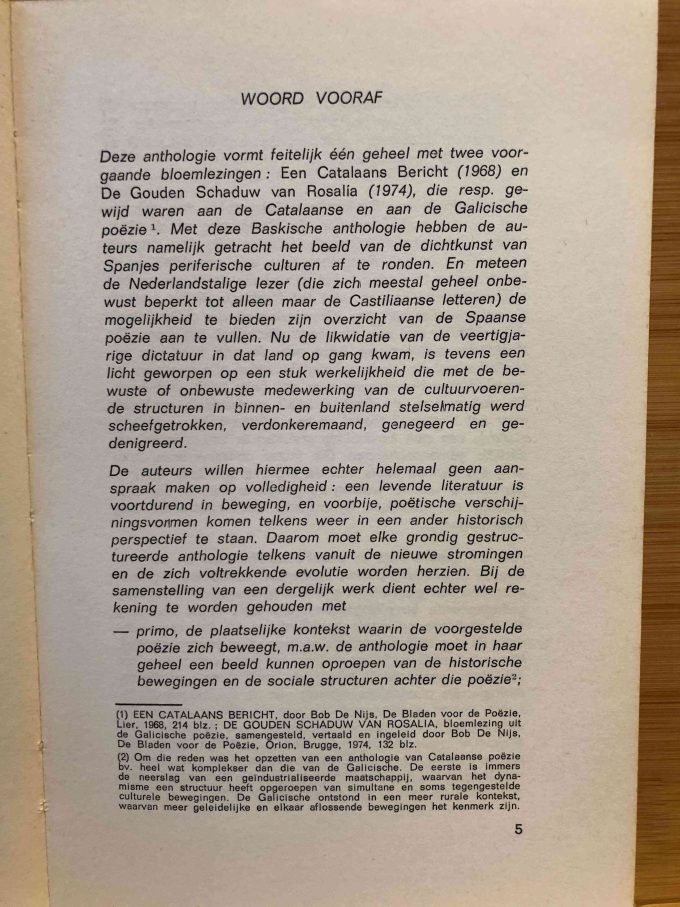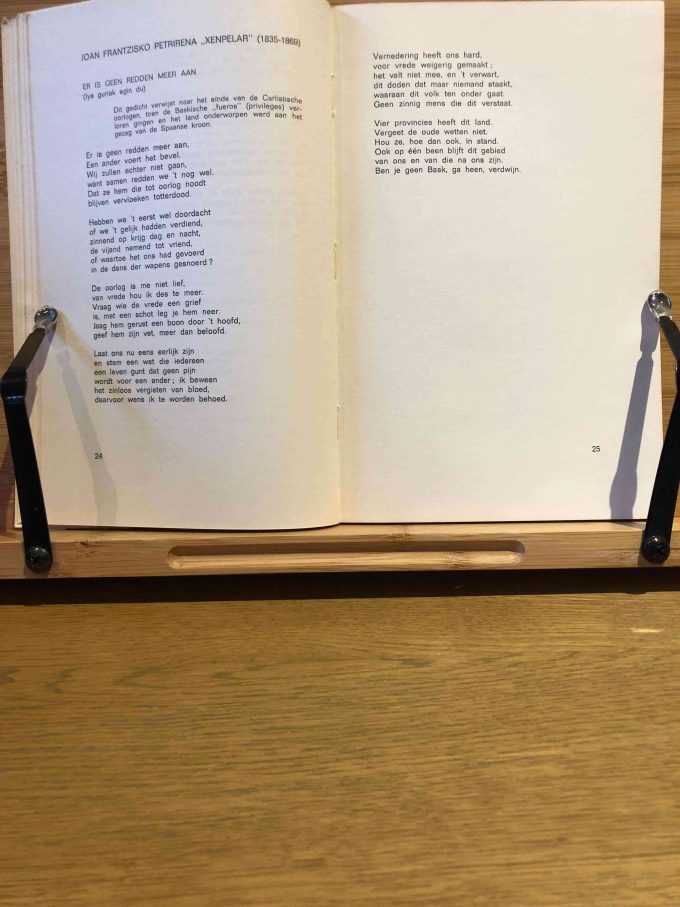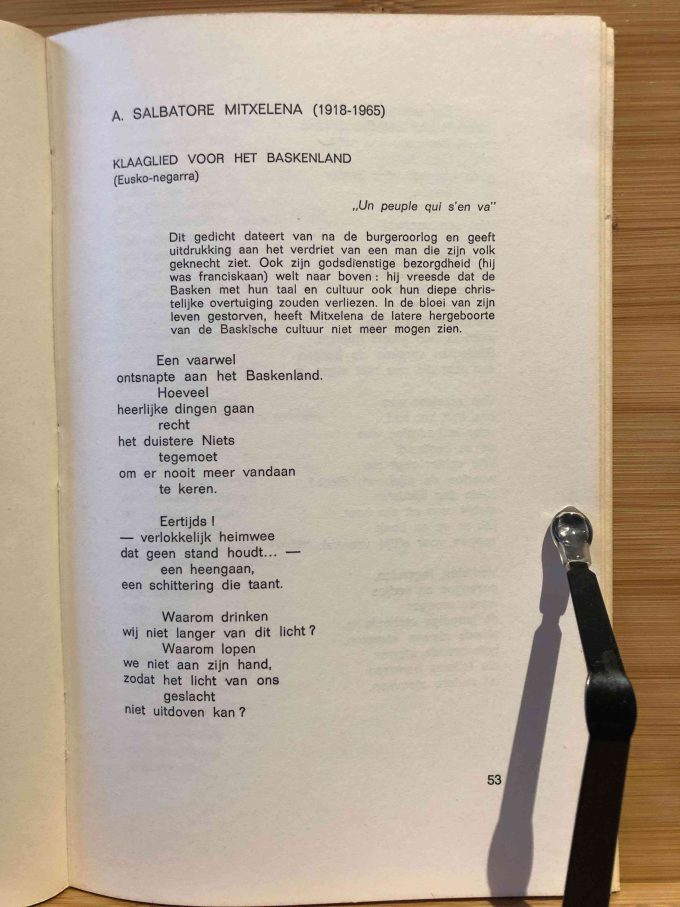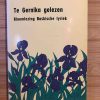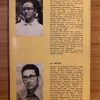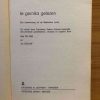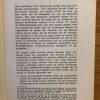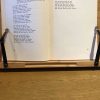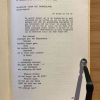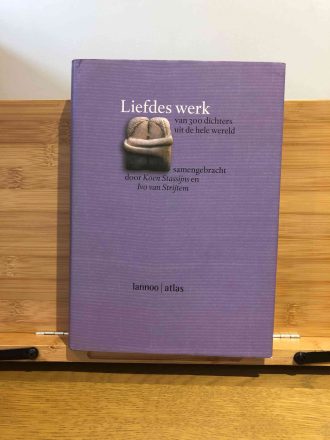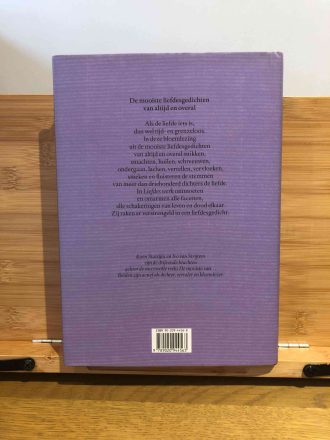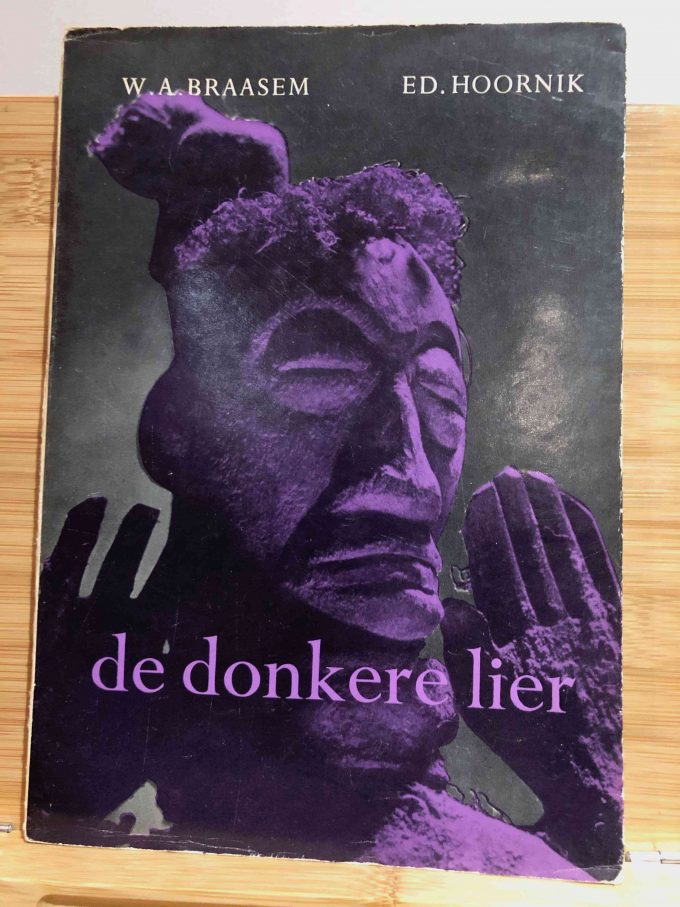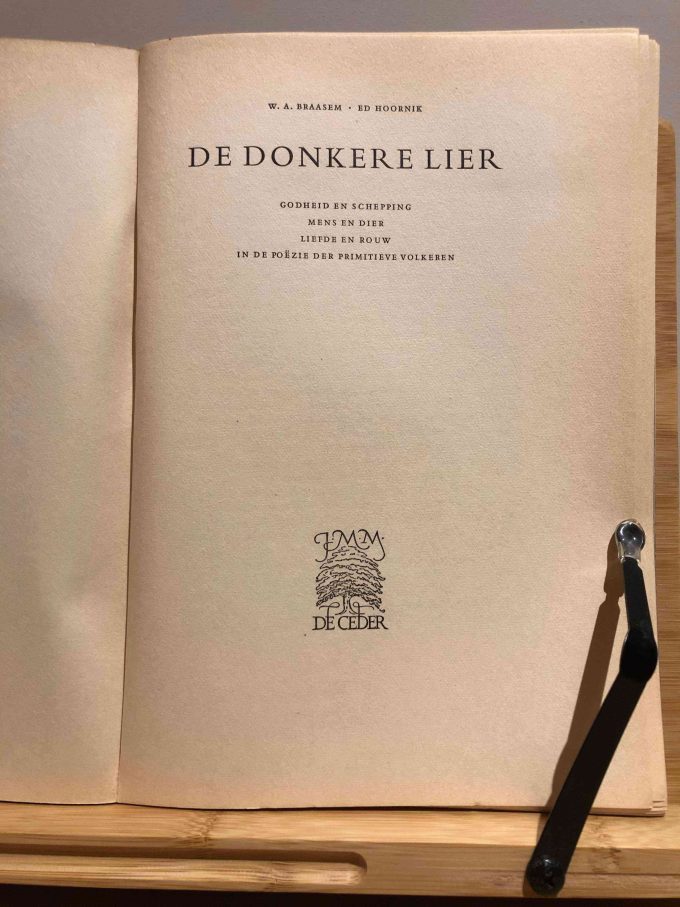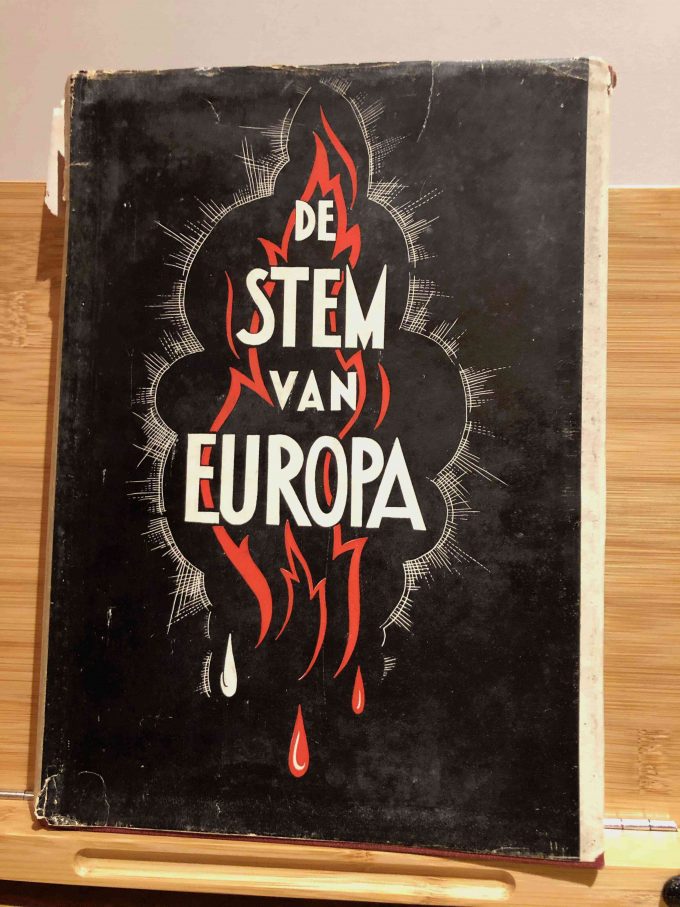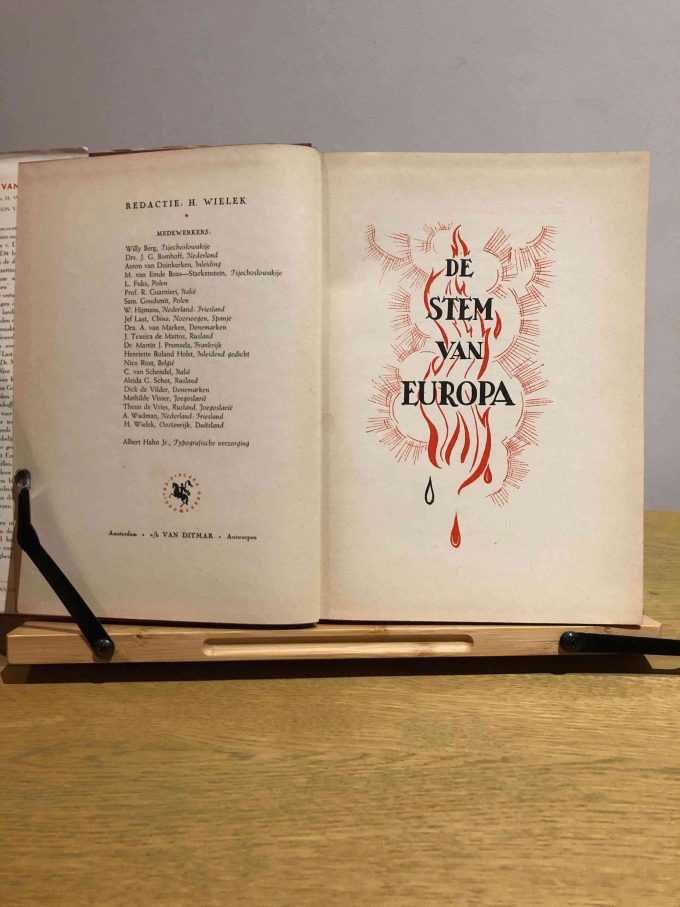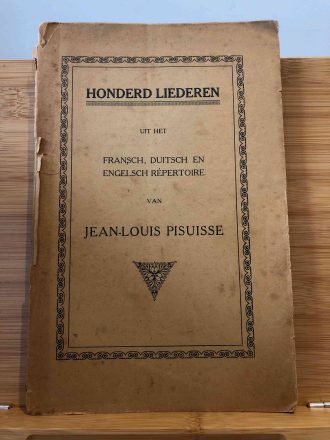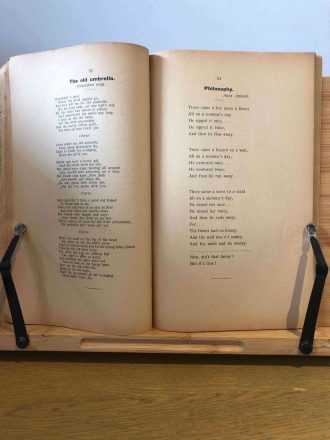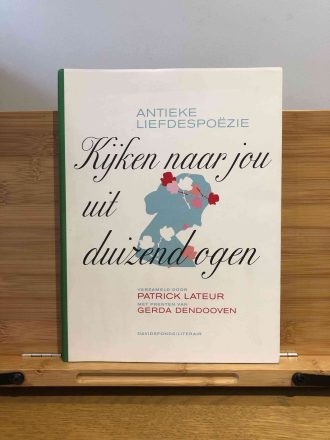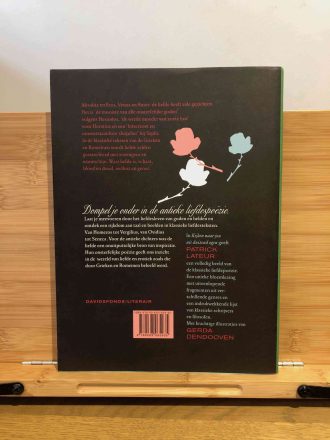Nederlands:
“Te Gernika gelezen” is een bloemlezing uit de Baskische lyriek, vertaald en ingeleid door Rob De Nijs en Jan Deloof, gepubliceerd door B. Gottmer / Orion in 1978. Deze eerste editie, bestaande uit 93 pagina’s, maakt deel uit van de reeks “De bladen voor de poëzie” en heeft een formaat van 13,5 cm bij 21 cm. Het boek is in uitstekende staat en heeft een zachte kaft met genaaide binding.
Gernika is wereldwijd bekend geworden door Picasso’s beroemde schilderij “Guernica” en heeft tragische actualiteit door de Baskische afscheidingsbeweging ETA. Het Baskisch is een lokale taal die alle overheersingen heeft overleefd dankzij het gehandhaafde isolement. Deze bundel Baskische lyriek is wetenschappelijk van aard door de bekwame inleidingen en verantwoorde herdichtingen, ingedeeld in drie hoofdstukken. Het begint met Iparragirre’s “De boom van Gernika”, het zinnebeeld van de Baskische vrijheidsstrijd, en eindigt met de jongste strijdbare dichters “die ons het meest nabij zijn”, zoals de samenstellers zelf verklaren. De derde afdeling bevat vooral prachtige en krachtige verzen, waarbij de vertalingen de indruk wekken dat de auteurs zich hebben geïdentificeerd met hun inspiratiebron.
English:
“Te Gernika gelezen” is an anthology of Basque lyric poetry, translated and introduced by Rob De Nijs and Jan Deloof, published by B. Gottmer / Orion in 1978. This first edition, consisting of 93 pages, is part of the series “De bladen voor de poëzie” and measures 13.5 cm by 21 cm. The book is in excellent condition with a soft cover and sewn binding.
Gernika is globally recognized due to Picasso’s famous painting “Guernica” and has tragic relevance due to the Basque separatist movement ETA. The Basque language has survived various dominations thanks to maintained isolation. This anthology of Basque lyric poetry is scientific in nature, with skilled introductions and responsible retranslations, divided into three chapters. It begins with Iparragirre’s “The Tree of Gernika,” the symbol of the Basque struggle for freedom, and ends with the youngest militant poets “who are closest to us,” as the compilers themselves declare. The third section especially contains beautiful and powerful verses, where the translations give the impression that the authors have identified with their source of inspiration.

